On April 12, 1961, Russian cosmonaut Yuri Gargarin became the first human being to achieve Earth orbit, effectively winning the space race. At NASA, scientists sighed, poured more coffee, and redoubled their efforts.
In New York, Stan Lee and Jack Kirby created the Fantastic Four.
With a new FF movie coming out, readers and fans are thinking about the place of Marvel’s First Family in any number of geeky hierarchies. Alex Pappademas has a nice essay on Grantland arguing for their importance based on family and fatherhood. As someone who has a straight-up Hickman-inspired Thinking Room (ok, a wall with chalkboard paint) and a son with a 4 1/2 onesie, I wholeheartedly agree. But I think that the real resonance of the FF is more than bickering in the Fantastic-car or being able to walk around in front of each other in a towel. I think that their importance — and I use that word seriously — is tied up in their collective, cultural origin. But maybe not like you think.
Most readers agree that part of the genesis of the FF was the very real space race. After all, the first thing Reed, Sue, Johnny, and Ben do is to steal a rocket.
Once they clear the atmosphere, they proudly declare that they are “the first!” though by the time the issue came out, Gargarin was already pointing to the scoreboard. The FF was just a fantasy. But what happens next was not. Reed, Sue, Johnny, and Ben get bombarded by RAK TAC TAC TAC TAC “cosmic rays.” That seemed like Star Trek science to me when I first read it in my Avon Pocket digest, but cosmic rays were actually one of the real reasons the U.S. was hesitant in sending men up past the upper atmosphere. Popular Science called them “death rays” that existed in a “narrow band” “1,000 miles up” from “a stream of fast electrons from the sun.”
Kirby had drawn cosmic rays before, but notice at how closely the language resembles the article. The cosmic rays go right through human tissue, appear as rays and flashes, and are “heavy particles.” There are tons of articles about cosmic rays and that word “heavy” gets used a lot. They have “heavy nuclei” and NASA struggles with “heavy shielding.” Pre-Thing Ben uses it, too.
Our astronauts (ok, technically they aren’t all astronauts) land, more or less successfully. But like the “space medicine experts,” they have no idea what to expect. In other words, the experience — winning (losing) the space race — has nothing but painful, bad consequences. The whole experience is loaded with disaster. Not like the U-Foes, but still.
A year earlier, on March 8, 1960, four Soviet sailors were rescued by an American boat after being trapped for 49 days in a submarine. But the American rescuers weren’t the focus of the story – the Russians were. They were tired and hungry, but they had survived an incredible ordeal. Even President Eisenhower had to publicly call them heroes. But it was tinged with a little bit of loss. They were Soviets, after all. The press called them “The Four” and followed their triumphant return all the way home to a massive parade in Moscow.
When the Four emerged from the ship, they were emaciated, long, and scary-looking. They were heroes, though at great physical cost.
If you’ve been reading this column, you know it’s been our growing, unexpected general theory that most of the early Marvel heroes have some bit of the sideshow freak to them. With the FF, I think that’s the case, too. The usual sideshow rooms at Coney Island and elsewhere saw acts like the Invisible Lady, the Rubber-Faced Man, and so on. We’ve already seen the Torch here.
With the FF though, I think it’s more complicated. Everybody knows the FF is about the space race, but I’d say it’s really about losing it. There is something about these good-looking young adventurers being turned into sympathetic, heroic freaks that pulls back to America’s national shame at losing to the Soviets. Or being less heroic than a bunch of stretched-out sailors. I think that’s why the FF look the way they do, with their problematic power sets. If comics superheroes reflect the culture, then the FF had to reflect that low self-esteem and uphill climb of coming in #2 to Yuri. They would have to wear similar uniforms like the Russians would and work towards a common good. Let’s face it, are any superheroes less selfish than the Fantastic Four? They had to be scientists instead of jawbones; collectivism instead of capes.
They just couldn’t be Superman. They had already lost.
I’m a huge FF fan and I am not alone. Has anyone out there stood in front of an elevator and touched their belt buckle? Or wanted their own pet Galactus? Or built a portal to the Negative Zone? Or called your 4th-grade substitute teacher a Skrull? There is an era or run for every kind of reader — Lee & Kirby, Wolfman, Buscema, Byrne, and Hickman. The FF as a whole, over time, is really as good as superhero comics gets. And unlike Superman, Batman, or Wonder Woman, they’ve also changed considerably since 1961, at least in the slow, geologically-paced way that comics sometimes — barely — can. They may not be as iconic as the others, but maybe that’s because of where — and how — they started: as second-best, amateur astronauts set to conquer all the comics genres, backlit by failure and cosmic rays.
If you’re interested in FF history, I highly recommend Stan Lee & Jack Kirby: The Wonder Years by the late Mark Alexander. Really great stuff.
Brad Ricca is the author of Super Boys: The Amazing Adventures of Jerry Siegel & Joe Shuster – The Creators of Superman, now available in paperback. He also writes the column “Luminous Beings Are We” for StarWars.com. Visit www.super-boys.com and follow @BradJRicca.



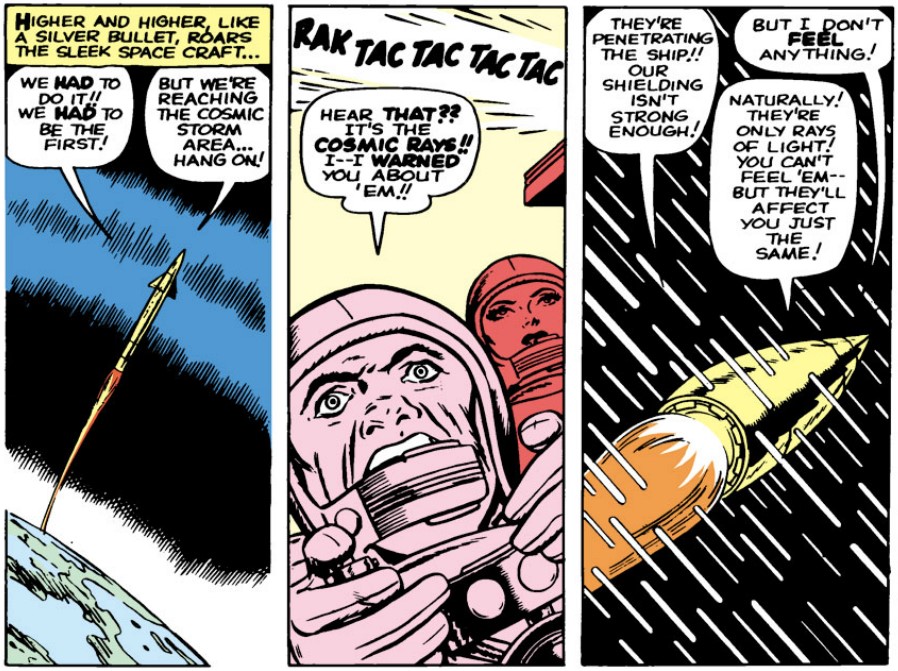
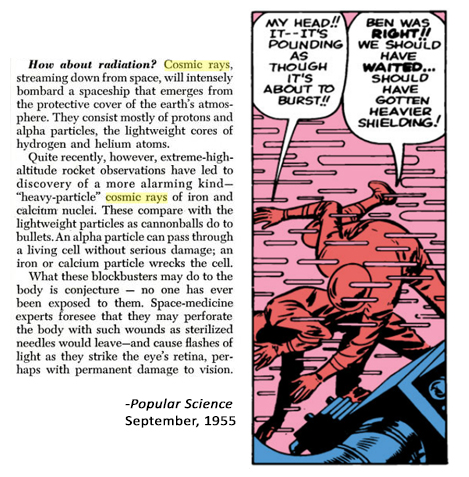
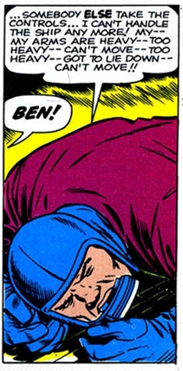
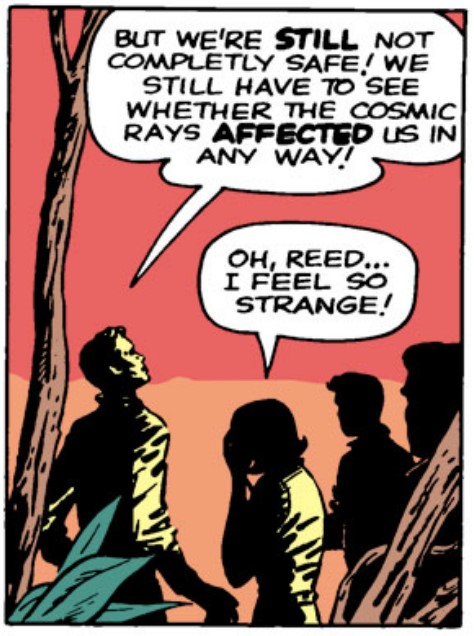
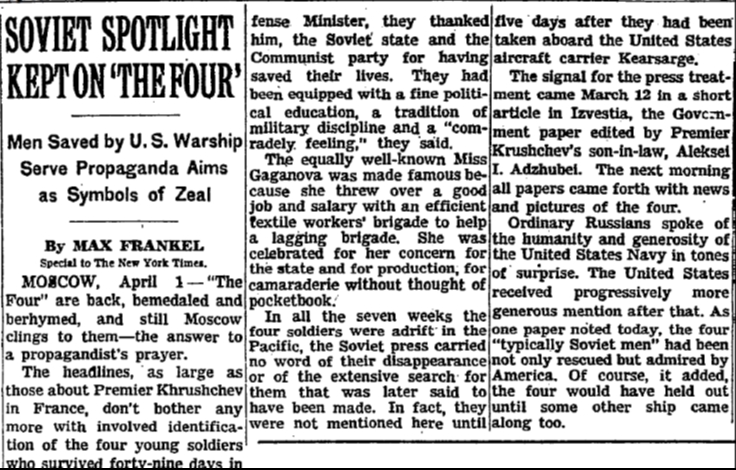

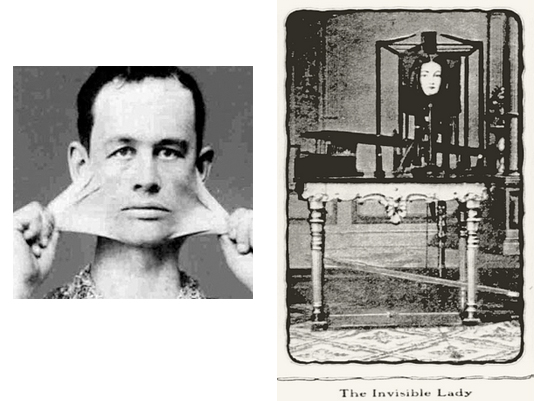
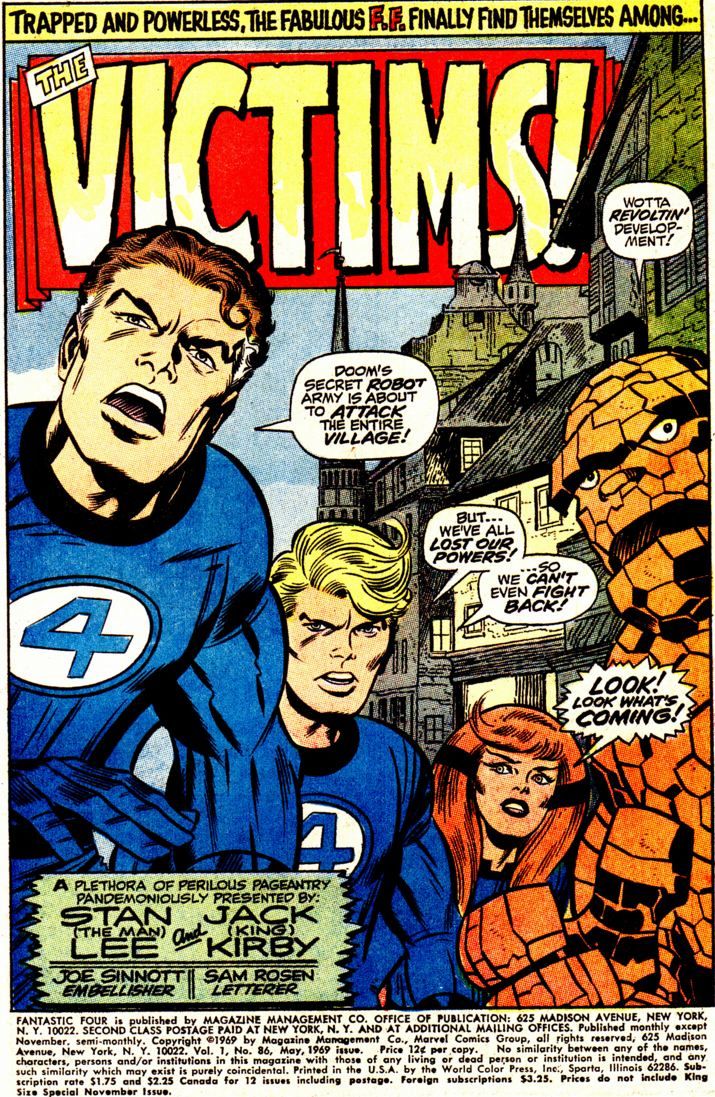
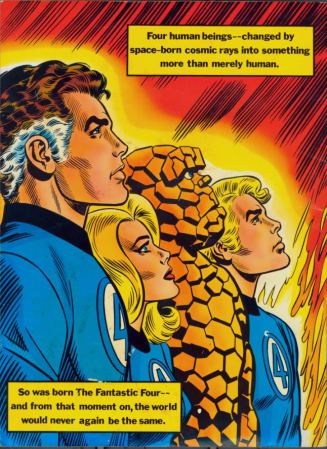
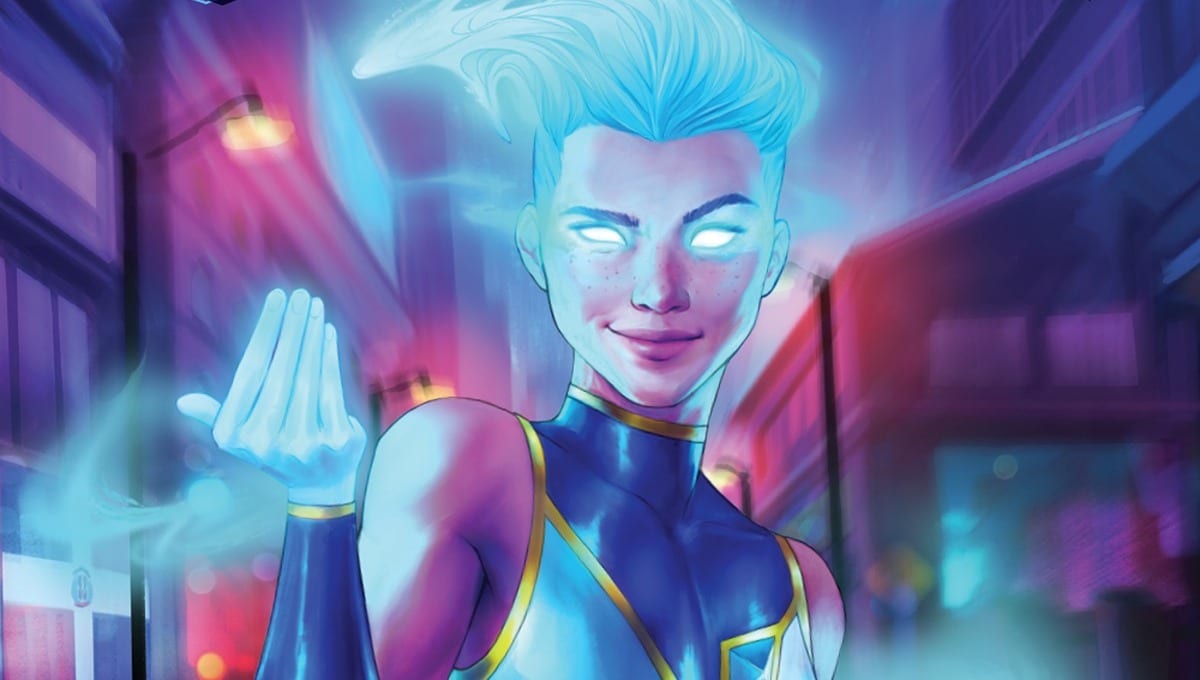
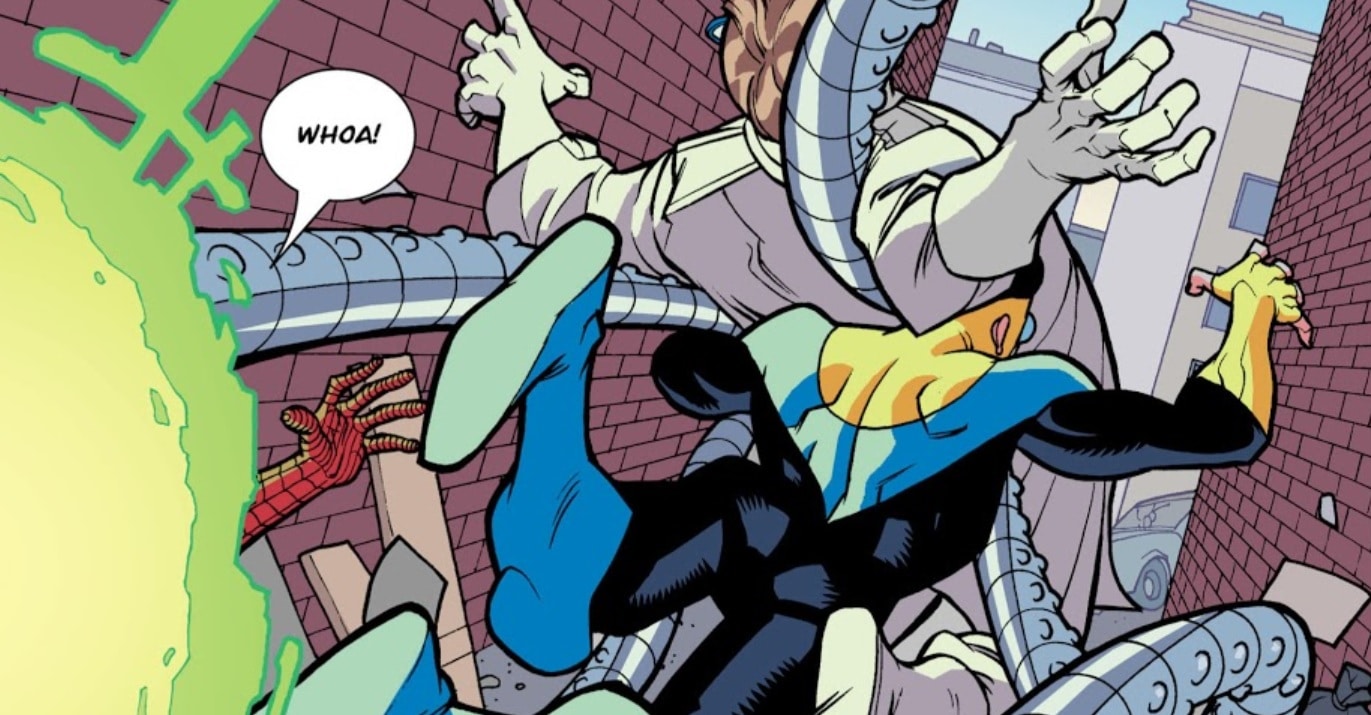
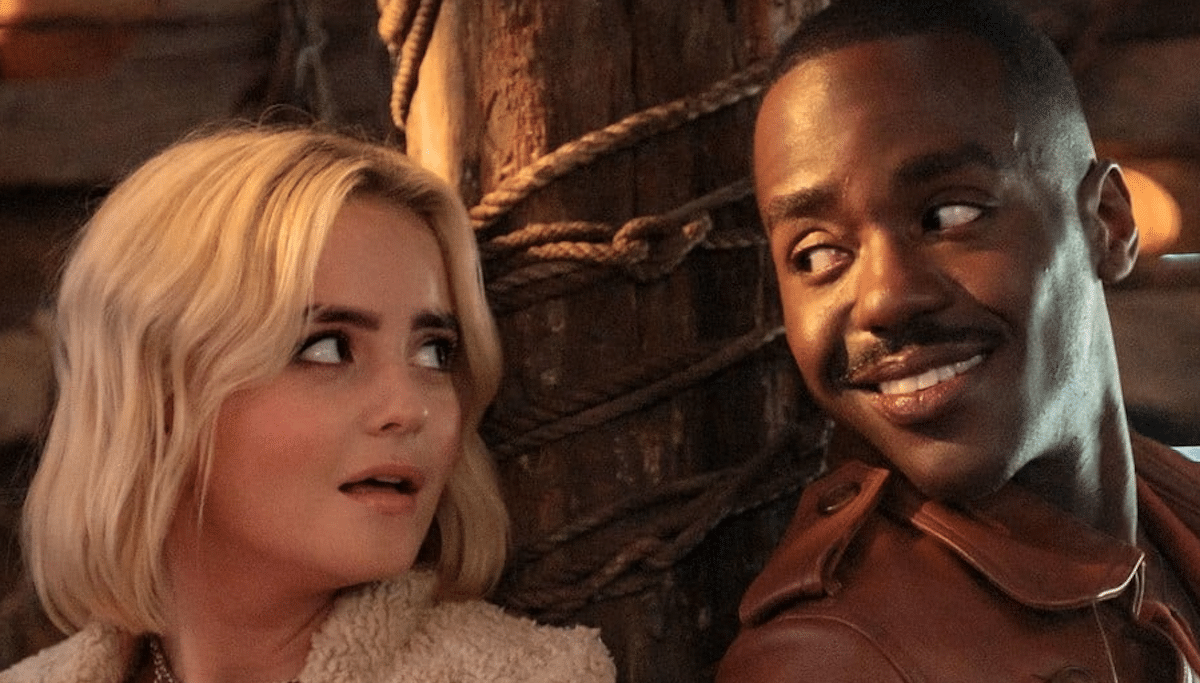



Come on, no one wants a “pet Galactus.”
A small version of Lockjaw, though…
I don’t know why new movies of the FF don’t make it the amateur space race, which is currently going on. They could win that, and because they’re amateurs Could be the reason why something goes wrong and they become the fantastic four
I saw “Fantastic4″ last night, and Sucktastic4ever was not worth it…
@Brian:
Why would a multinational corporation make a movie about anything like informing an ‘American’ populace about some modern day space race, while our daily lives have nothing to do with wanting to improve our way of life, or even be informed about something like a ‘space race’ that would require work ethic, education/training, and cooperation to accomplish?
Y’all think about it”:
Isn’t that a mark of today’s anti-culture, as we are consumers that pretend to be ‘Americans’ / ‘humans’, saying “…You’ll probably never see it. Thant’s reality though”? Here we are as everything is made to break down and take our money, instead of work and last, while we sit in traffic, and have our dignity chipped away so we can push ‘corporate policy’ for a paycheck that has diminishing returns on purchasing power, and the concept of making even a great movie for something like LEE/KIRBY’S Fantastic Four is more about “consumer” disappointment and wasting our money, than it is about entertainment that inspires the imagination, incites intelligent conversation, and urges the viewer to want to go out and learn more about science, being around a group of people who are different and working together to have fun and adventure, and of course -the Fantastic Four.
This goes for everyone from the people who walk around high school tracks and football fields for some charity cause to gain money and recognition for curing cancer (while companies like Monsanto have patents on genetic sequences, but will not use them as it is more profitable to treat than cure diseases, along with the congressmen they have in their pockets), to the lame corporate tools like us as we just sit in traffic, and have the nerve just to tell ourselves success is based on attitude, and ‘think positive’ (while we have no urge or idea as to how to enable cooperation and tolerance at work or in our neighborhoods, have no idea how to tell someone how to meet their city council members, how to have a peaceful non-violent protest against things like how we use gerrymandering or out-sourcing jobs instead of training Americans, or how to be involved in town hall meetings), to the ‘consumer’ that is willing to pay over $2.00 for a “comic book” that is mainly about “super heroes” band names (instead of cutting edge, and just plain quality sequential art / story telling) -Remember this when you make a decision fellow ‘Americans’, and overall Fantastic4 ticket buyers / ‘consumers’ / chumps :
Live like a consumer, then get treated like a ‘consumer’.
Yuuu-p, thaz riiii-ite, I said it and I’z says it agains, cuz it’s time to DRAXX THEM SKOUNST, as we treat these mammajamaz from Fox like sum kinda “terries” onz’tha wallet n $h!+ -I mean is get’n waaay too froggy, and we’z gotta be prepared to blast up on these wallet-terries know’msaynz… (youtube Key & Peele – Prepared for Terries):
Live like a consumer, then get treated like a ‘consumer’.
Comments are closed.